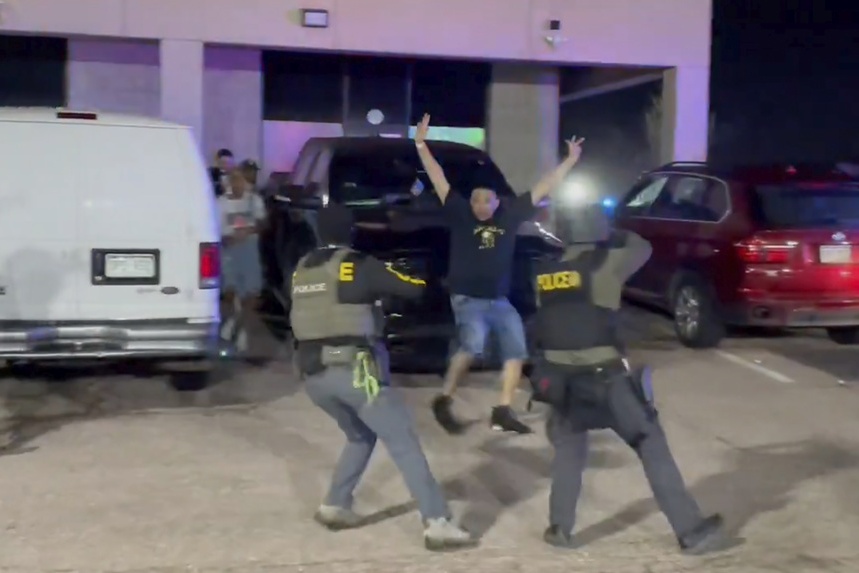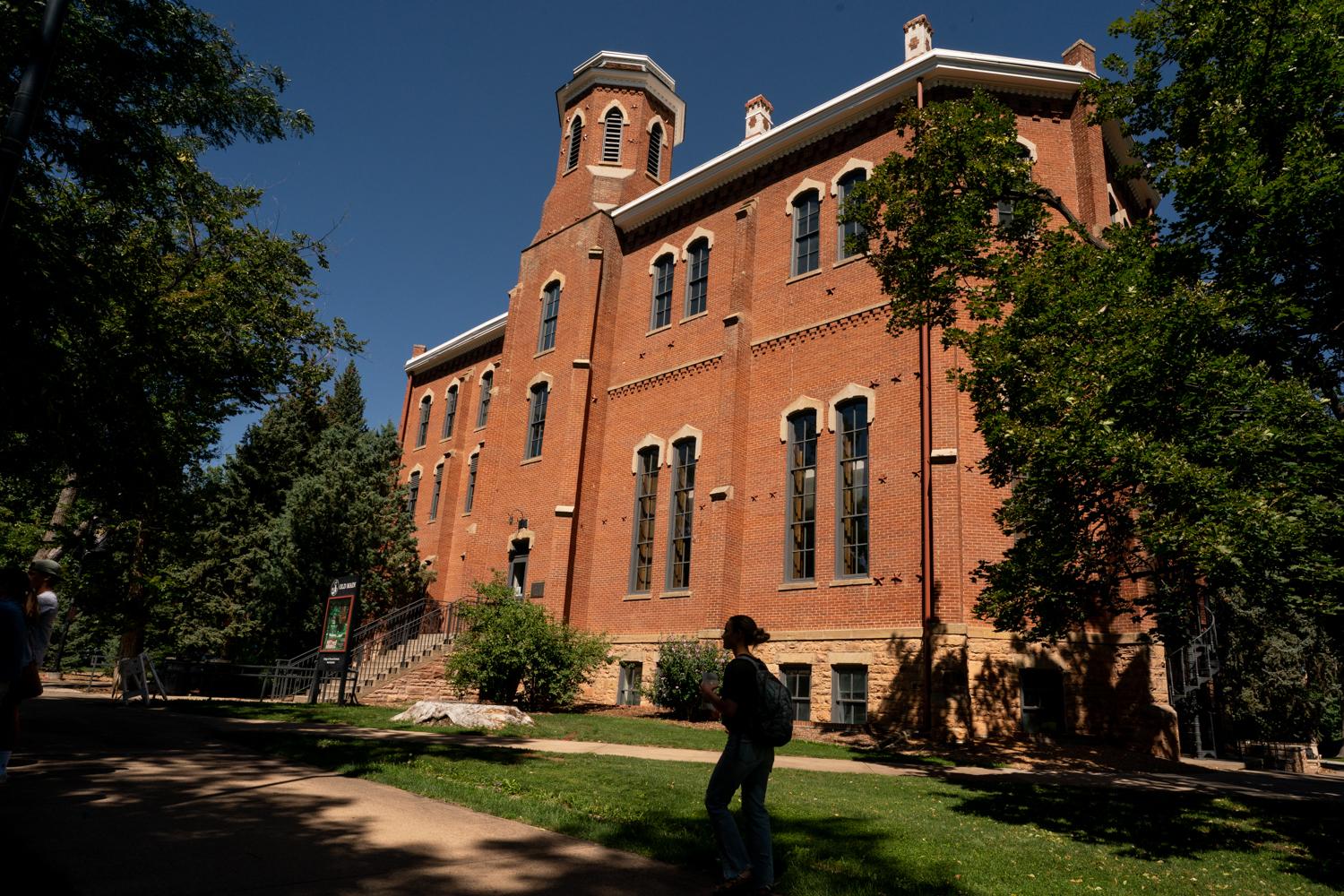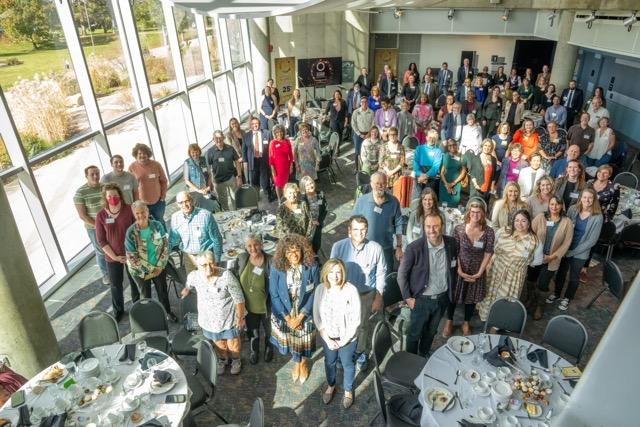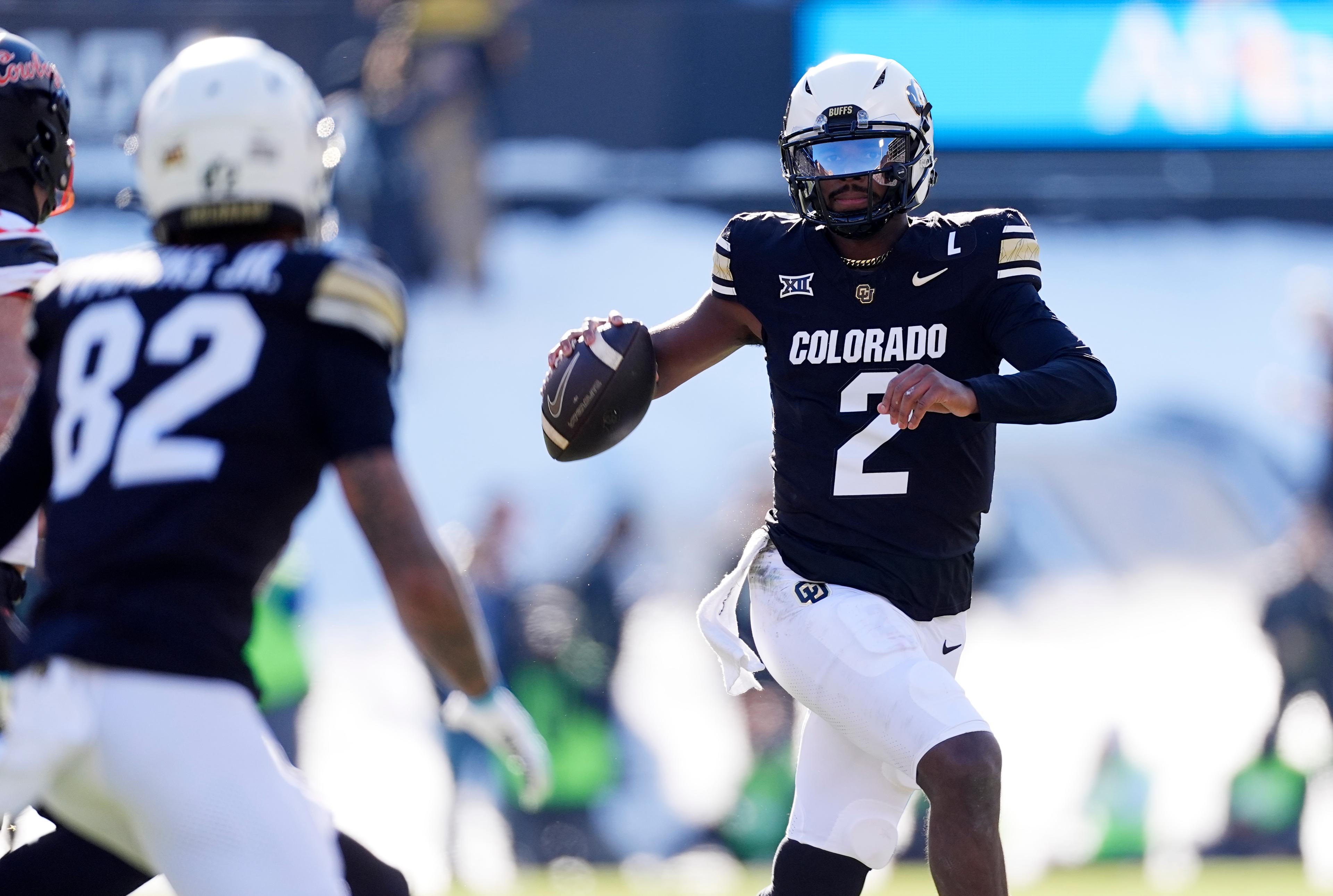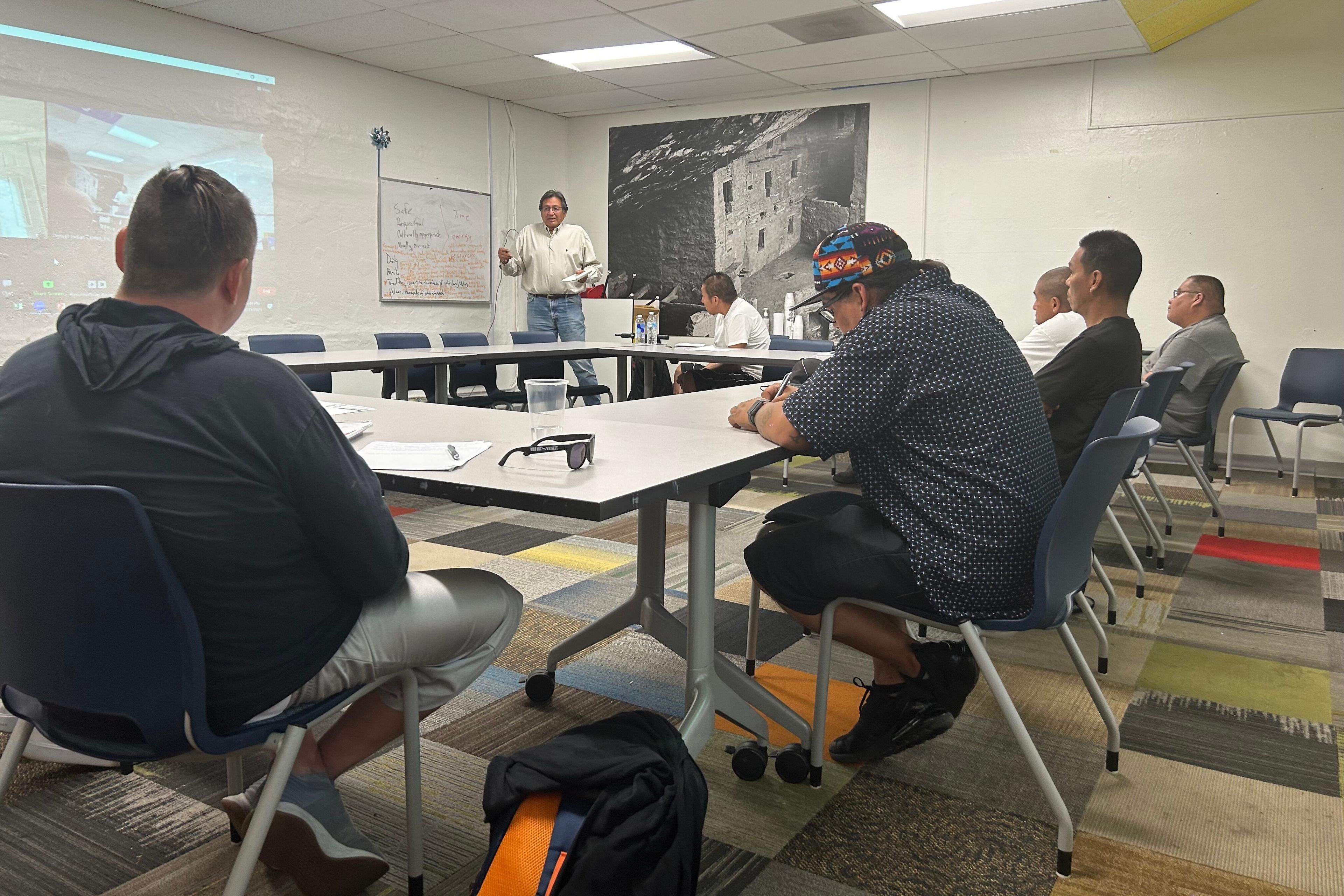
As Father's Day approaches, we're reminded of the adage, "Anyone can be a father, but it takes someone special to be a dad."
This sentiment seems central to the mission of the Denver Indian Center’s “Honoring Fatherhood Program.” It aims to help Native American fathers become more present and active dads in their children's lives. David Wright, the center's data manager, joined Colorado Matters host Chandra Thomas Whitfield to talk about the program.
Read the interview
Editor’s note: This interview transcript has been edited for length and clarity.
Chandra Thomas Whitfield: First off, what is the Denver Indian Center?
David Wright: The Denver Indian Center is a local community center for American Indian and Alaska Native individuals in the Denver metro area. We have comprehensive programs from our WIOA Workforce program to our Honoring Fatherhood program and our Elders program. We also have a youth program geared for outdoor leadership and literacy, and a peer support program that helps with day-to-day emergencies and mental health services. The Indian Center has been around for 40 years in our current location, but there has been a form of the Denver Indian Center for over 50 years.
Thomas Whitfield: So this program is called the Honoring Fatherhood Program. Tell us more about the program, who's in it, and what is its mission?
Wright: The Honoring Fatherhood program has been around for nine years. It's designed for American Indian and Alaska Native fathers who want to be more relevant in their kids' lives, to step up, be more present, be a provider, a nurturer—any of those ideals of an ideal father. The idea is to help fathers grow to be more balanced in the physical, emotional, mental, and spiritual areas of their being, and to teach their kids all of those elements. We also focus on having a stronger relationship with their co-parent and partners, being a strong provider not just economically but emotionally, mentally, and spiritually. So far, we have served over 600 fathers, with over 98% saying it has had a significant positive impact on their lives.
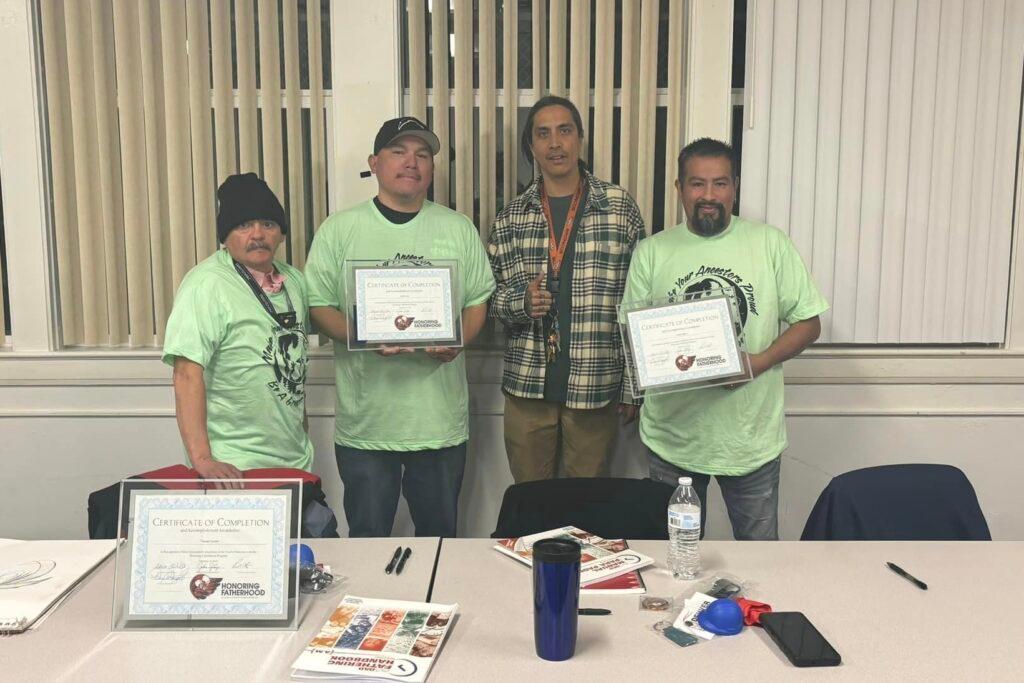
Thomas Whitfield: And this not only includes biological fathers, but also stepfathers, grandfathers, or people who are father figures as well?
Wright: That is correct. We serve everyone from uncles to even brothers who are helping raise their siblings. Anybody in a father figure role, we work to support and enhance their skills through real-life scenarios and choices.
Thomas Whitfield: From what I understand, this program was inspired by some concerning levels of fatherlessness among members of the Native American community. Tell us more about that.
Wright: It’s one of the most pervasive issues within the Native American community. Fatherlessness is defined as growing up in a household without a father present for nine months or more. Our leadership saw this need and sought funding from the Health and Human Services federal grant to support and break the cycle of fatherlessness.
Thomas Whitfield: A focus of the program is supporting Native American fathers, but it’s really open to anyone who's interested in growing as a father, right?
Wright: Yes. We welcome any father that wants to improve themselves and their relationship with their kids and their co-parent. So it is open to any father from the age of 18 and up who lives in the state of Colorado.
Thomas Whitfield: How does the program work? What does it entail?
Wright: The program works by having interested individuals fill out some basic application paperwork. Then they attend two classes a week for six weeks, totaling 12 sessions and 24 credit hours. We cover everything from historical trauma to discipline to being an ideal father. One recent topic is getting involved as a father and coming together as a couple. We want fathers to step up and be active in their children's lives and households.
Thomas Whitfield: And you provide childcare during the classes and transportation assistance and even connect participants with other service agencies?
Wright: Yes. We also offer a virtual component, especially since COVID. We try to meet fathers where they are, understanding transportation can be a barrier. We provide support for mental health, academic tutoring for their kids, and other wraparound services to help fathers be as successful as possible.
Thomas Whitfield: I had the opportunity to talk to some men involved in the program, including a former participant who now serves as a Spanish facilitator in the program and they raved about how it has changed their relationships with their children – and their lives – for the better. David, how does it feel to hear all of those amazing and heartwarming comments about the program?
Wright: It feels good. It means we're doing our job, helping to change behaviors, and helping fathers understand they have choices to move forward and help their family be more successful. It is heartwarming to hear the positive impact on participants.
Thomas Whitfield: Would you say there is an epidemic of fatherlessness across the board in our society today? And if so, in what ways do you feel it's showing up in our communities?
Wright: One big area is the behaviors happening within schools —fighting, reckless behaviors, etc. It also affects the overall mental health of our youth. We see a high rate of suicides and a significant number of Native American children ending up in foster care. This points to a broader issue of fatherlessness, with many Native kids being raised by grandparents or other relatives due to a lack of support and forced removals in the past.
Thomas Whitfield: What are some common misconceptions about fatherhood that you and your team often encounter, especially among participants in this program?
Wright: A big misconception is that fathers must be the strong, stoic figures the media portrays—chiseled, tough, and always dominant. We want fathers to be nurturers, supportive, honorable, loyal, and humorous. We want them to help their kids grow as individuals and be role models, balancing strength with vulnerability and presence.
Thomas Whitfield: What are some of the biggest barriers to fatherhood that persist in the Native American community in particular, and how does it compare with other racial and ethnic groups?
Wright: Unemployment is a significant barrier, leading to economic challenges. Native Americans have higher unemployment rates, so we help individuals gain additional training and skills through our workforce programs. We also support dads reentering society after incarceration, helping them find gainful employment and be active in their children's lives.
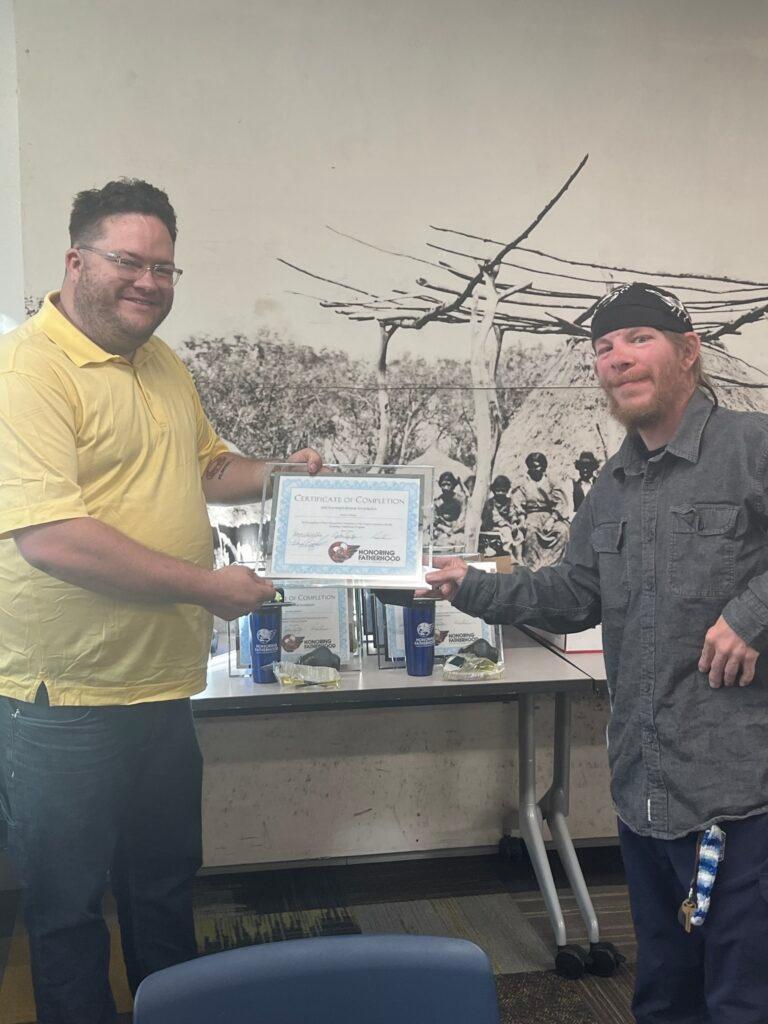
Thomas Whitfield: It's really interesting. I don't know that sometimes people connect those dots about how that economic component matters so much, maybe even with self-esteem or feeling confident in your fatherhood.
Wright: Yes, that’s a big piece. We help fathers understand their financial needs and set budgets, connecting them with benefits like SNAP or TANF, childcare, and educational resources to support their families. It’s about building a relationship and case-by-case management to help them succeed.
Thomas Whitfield: This program focuses on promoting active fatherhood among Native American fathers, but this is really a universal issue. Why, in your view, is fatherhood important? What are the benefits of active and healthy fatherhood?
Wright: Healthy and active fatherhood leads to healthy families and strong community leaders. It brings balance to the sacred roles of both parents. Being a father or mother is one of the most sacred roles, and it’s important to bring that balance and sacredness to the forefront of relationships and communities.
Thomas Whitfield: You mentioned the word "sacred." One of the taglines to your program is "generations of Native men making a difference tied together by tradition and building future generations of fathers." Tell us more about those traditions and the tenets of Native American fatherhood.
Wright: The tradition is about honoring your kids, co-parenting successfully, and nurturing children. The traditional teachings include spending time with your kids, teaching them about their heritage, and being present in their lives. It’s about ensuring they grow up with strong values and connections to their culture and community.
Thomas Whitfield: Do the classes ever delve into traditional roles that fathers have played in the past?
Wright: Yes. We discuss our ancestors' roles and how modern fathers can bring that traditional strength, respect, and love into today’s world. We want to ensure they are nurturing and balanced, not just stoic and strong. We emphasize traditional values while addressing contemporary issues. We balance past traditions with present needs to ensure our fathers can lead successful lives and raise strong, well-rounded children.
Thomas Whitfield: Thank you so much for joining us today and sharing your insights about what sounds like an amazing program.
Wright: Thank you for having me. I appreciate the opportunity to share our work. I hope this inspires more fathers to step up and join us in making a difference in their children’s lives.
For more information about the Honoring Fatherhood Program, visit the Denver Indian Center‘s website at denverindiancenter.org.

